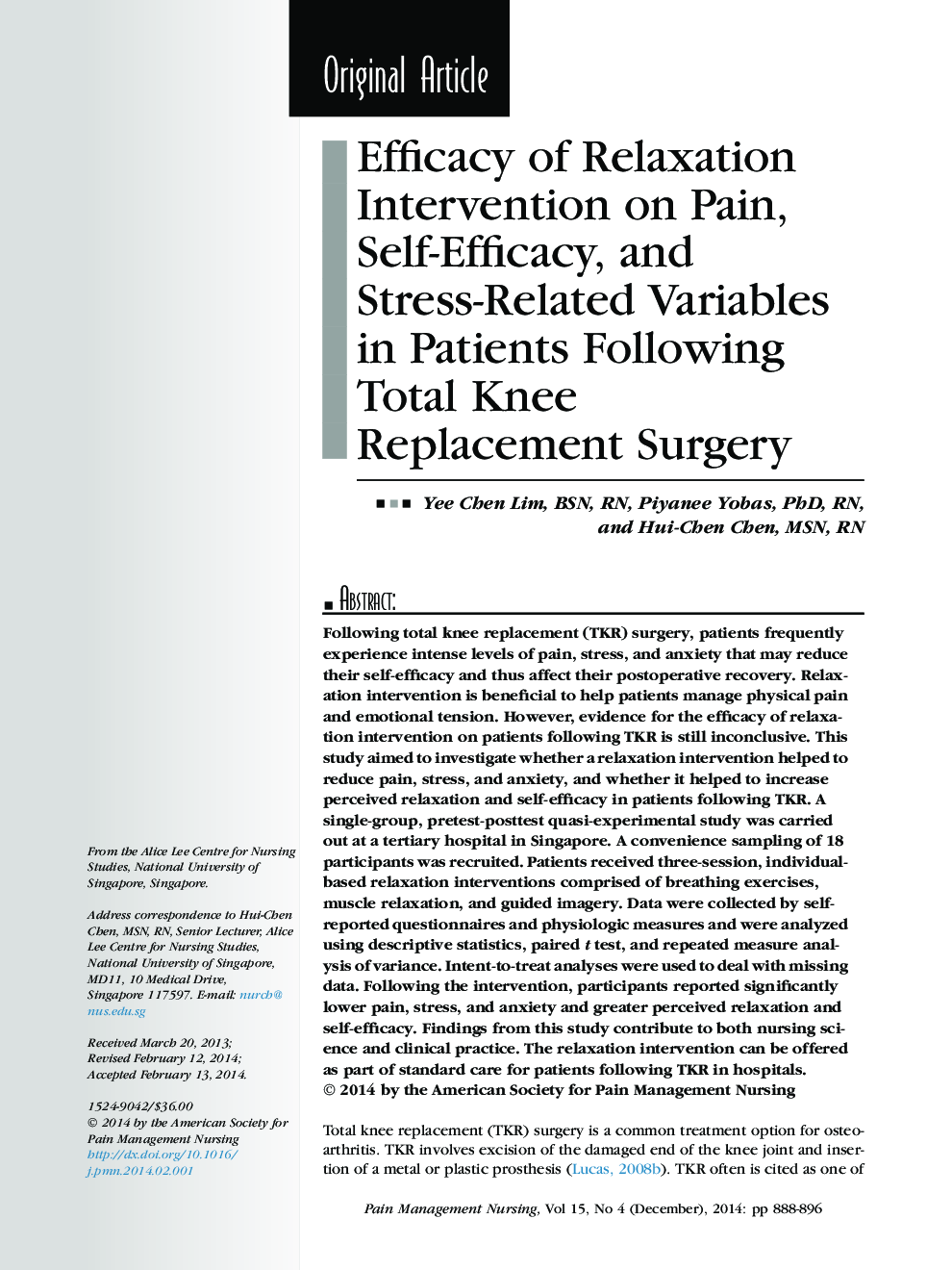| Article ID | Journal | Published Year | Pages | File Type |
|---|---|---|---|---|
| 2678000 | Pain Management Nursing | 2014 | 9 Pages |
Following total knee replacement (TKR) surgery, patients frequently experience intense levels of pain, stress, and anxiety that may reduce their self-efficacy and thus affect their postoperative recovery. Relaxation intervention is beneficial to help patients manage physical pain and emotional tension. However, evidence for the efficacy of relaxation intervention on patients following TKR is still inconclusive. This study aimed to investigate whether a relaxation intervention helped to reduce pain, stress, and anxiety, and whether it helped to increase perceived relaxation and self-efficacy in patients following TKR. A single-group, pretest-posttest quasi-experimental study was carried out at a tertiary hospital in Singapore. A convenience sampling of 18 participants was recruited. Patients received three-session, individual-based relaxation interventions comprised of breathing exercises, muscle relaxation, and guided imagery. Data were collected by self-reported questionnaires and physiologic measures and were analyzed using descriptive statistics, paired t test, and repeated measure analysis of variance. Intent-to-treat analyses were used to deal with missing data. Following the intervention, participants reported significantly lower pain, stress, and anxiety and greater perceived relaxation and self-efficacy. Findings from this study contribute to both nursing science and clinical practice. The relaxation intervention can be offered as part of standard care for patients following TKR in hospitals.
